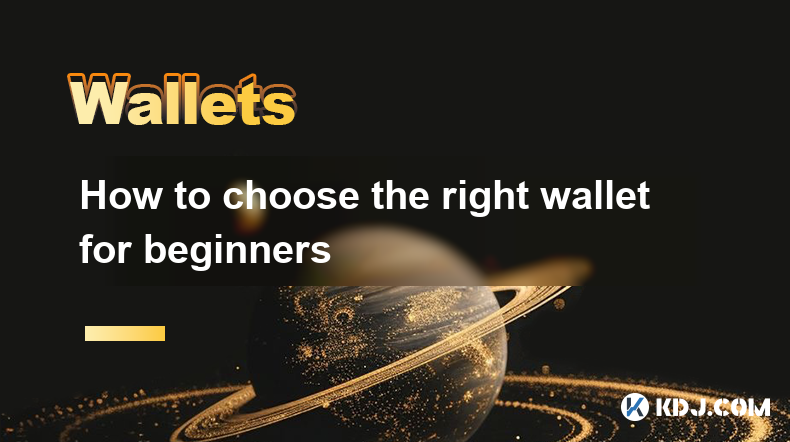-
 Bitcoin
Bitcoin $99,617.4815
2.31% -
 Ethereum
Ethereum $1,986.4455
8.62% -
 Tether USDt
Tether USDt $1.0003
0.03% -
 XRP
XRP $2.2144
3.38% -
 BNB
BNB $617.2234
2.13% -
 Solana
Solana $156.5854
6.33% -
 USDC
USDC $1.0002
0.01% -
 Dogecoin
Dogecoin $0.1858
7.44% -
 Cardano
Cardano $0.7220
7.11% -
 TRON
TRON $0.2501
1.15% -
 Sui
Sui $3.8071
13.18% -
 Chainlink
Chainlink $14.9210
8.33% -
 Avalanche
Avalanche $20.7850
6.19% -
 Stellar
Stellar $0.2743
5.14% -
 Bitcoin Cash
Bitcoin Cash $417.6181
13.65% -
 UNUS SED LEO
UNUS SED LEO $8.7605
0.83% -
 Shiba Inu
Shiba Inu $0.0...01359
5.91% -
 Hedera
Hedera $0.1871
6.00% -
 Toncoin
Toncoin $3.1226
3.14% -
 Hyperliquid
Hyperliquid $21.5481
1.03% -
 Litecoin
Litecoin $92.3374
2.77% -
 Polkadot
Polkadot $4.2372
6.72% -
 Monero
Monero $293.7735
2.89% -
 Dai
Dai $1.0003
0.02% -
 Bitget Token
Bitget Token $4.3628
1.22% -
 Ethena USDe
Ethena USDe $1.0004
0.00% -
 Pi
Pi $0.6243
6.95% -
 Pepe
Pepe $0.0...09531
16.64% -
 Bittensor
Bittensor $402.7974
10.64% -
 Uniswap
Uniswap $5.2340
7.92%
How to choose the right wallet for beginners
Choosing a reliable and suitable crypto wallet is vital for managing digital assets safely, prioritizing security, ease of use, and supported currencies for beginners.
Feb 20, 2025 at 03:49 pm

Essential Factors to Consider When Selecting a Crypto Wallet for Beginners
Choosing a reliable and suitable crypto wallet is a crucial aspect of managing digital assets safely and efficiently for beginners. Factors such as security, ease of use, supported currencies, and fees play a pivotal role in the selection process. This guide will provide a comprehensive overview of the key considerations, empowering you with the knowledge to make informed decisions.
Key Considerations for Choosing a Crypto Wallet
- Security: Prioritize robust security measures, such as two-factor authentication (2FA), multi-signature support, and offline storage capabilities, to safeguard your assets from theft and unauthorized access.
- Ease of Use: The wallet should be user-friendly and intuitive, with a straightforward interface that simplifies navigation and transaction management.
- Supported Currencies: Ensure the wallet supports the cryptocurrencies you intend to hold and trade. Verify if it accommodates multiple coins or only a limited selection.
- Fees: Evaluate the transaction fees associated with the wallet for both deposits and withdrawals. Consider wallets with competitive or low fees to minimize costs.
- Type of Wallet: Determine the type of wallet that aligns with your needs: hot wallets (online access) or cold wallets (offline storage). Each type offers unique advantages and security levels.
- Reputation: Research the reputation of the wallet provider, including user reviews and industry ratings. Opt for wallets with a proven track record of reliability and customer support.
Other Features: Consider additional features that enhance the user experience, such as:
- Mobile compatibility for on-the-go access
- Staking or yield earning capabilities
- Integration with cryptocurrency exchanges
Choosing the Right Wallet for Beginners: A Step-by-Step Guide
- Identify Your Needs: Determine the purpose of your wallet, whether it's for long-term storage, frequent trading, or a combination of both.
- Research Security and Features: Explore different wallets and their security mechanisms, supported currencies, and additional features. Read reviews and consult reputable sources for insights.
- Consider the Type of Wallet: Decide between hot wallets for convenience or cold wallets for enhanced security. Consider the pros and cons of each type.
- Prioritize User-Friendliness: Choose a wallet with an intuitive interface that simplifies navigation and transaction management, especially for beginners.
- Verify Supported Currencies: Ensure the wallet accommodates the cryptocurrencies you intend to handle. Consider wallets that support multiple coins for versatility.
- Check Fees: Compare the transaction fees associated with different wallets. Opt for cost-effective solutions that minimize unnecessary expenses.
- Establish a Backup Plan: Implement a backup strategy to protect your wallet and its contents in case of device failure or loss. Consider using a reputable backup service or storing the wallet's private key securely.
- Practice Due Diligence: Thoroughly research the wallet provider's reputation and customer support. Opt for reputable companies with a proven track record of reliability.
- Start Small: Begin with small amounts of cryptocurrency until you become comfortable with the wallet's functionality and security measures. Gradually increase your holdings as your confidence grows.
- Secure Your Wallet: Implement strong security practices, such as 2FA and a complex password. Store your private key in multiple secure locations, and avoid sharing it with others.
FAQs Related to Crypto Wallet Selection for Beginners
- What is the best crypto wallet for beginners?
Answer: The best crypto wallet for beginners depends on individual needs and preferences. Common recommendations include Coinbase Wallet, Exodus, and Trust Wallet. - What is a hot wallet, and how does it differ from a cold wallet?
Answer: A hot wallet is a software or online wallet that provides convenient access to your crypto assets. It is connected to the internet, facilitating transactions. In contrast, a cold wallet is a hardware device that stores your assets offline, enhancing security. - How do I keep my crypto wallet safe?
Answer: Implement robust security measures such as 2FA, a strong password, and offline storage of your private key. Additionally, be vigilant against phishing scams and suspicious links. - Can I change my crypto wallet in the future?
Answer: Yes, you can change your crypto wallet at any time. Transfer your assets to the new wallet by following the necessary instructions. Ensure you back up your wallet and its contents before initiating the transfer.
Disclaimer:info@kdj.com
The information provided is not trading advice. kdj.com does not assume any responsibility for any investments made based on the information provided in this article. Cryptocurrencies are highly volatile and it is highly recommended that you invest with caution after thorough research!
If you believe that the content used on this website infringes your copyright, please contact us immediately (info@kdj.com) and we will delete it promptly.
- Bitcoin Just Broke $99,000 as Crypto Market Reacts to Trump's "Major Trade Deal" Teaser
- 2025-05-08 23:15:12
- Bitcoin Cash (BCH) Breaks 8-Year Downtrend as BTC Bull Token Promises 10x Gains
- 2025-05-08 23:15:12
- Ripple's XRP Has Gained 3% in the Last 24 Hours, Riding the Wave of Renewed Optimism in the Broader Cryptocurrency Market.
- 2025-05-08 23:10:12
- Bitcoin (BTC) is no longer just “digital gold” — Dan Held says the narrative needs to evolve
- 2025-05-08 23:10:12
- Stripe Expands Into the Crypto Arena, Launching Support for USDC Stablecoin Payments
- 2025-05-08 23:05:12
- GoMining Removes the Friction of Entry Into the Bitcoin Ecosystem
- 2025-05-08 23:05:12
Related knowledge

What currencies does Trezor Model T support? How to add them?
May 08,2025 at 08:42pm
The Trezor Model T is a popular hardware wallet that supports a wide range of cryptocurrencies, making it a versatile choice for crypto enthusiasts. In this article, we will explore the various currencies supported by the Trezor Model T and provide a detailed guide on how to add them to your wallet. Supported Currencies on Trezor Model TThe Trezor Model...

Does Exodus support DeFi? How to connect to the application?
May 08,2025 at 07:35pm
Does Exodus support DeFi? How to connect to the application? Exodus is a popular multi-asset cryptocurrency wallet that has garnered attention for its user-friendly interface and wide range of supported cryptocurrencies. One of the frequently asked questions by users is whether Exodus supports decentralized finance (DeFi) applications and how to connect...

Can the Exodus wallet be anonymous? How to protect privacy?
May 08,2025 at 09:35pm
Can the Exodus Wallet Be Anonymous? How to Protect Privacy?The question of whether the Exodus wallet can be anonymous and how to protect privacy within it is crucial for users who value their financial privacy. Exodus is a popular multi-currency wallet that supports a variety of cryptocurrencies, but its default settings do not inherently provide comple...

Where is the private key of Exodus? How to export it?
May 08,2025 at 09:22pm
Where is the private key of Exodus? How to export it? Exodus is a popular multi-currency wallet that allows users to store, manage, and exchange a variety of cryptocurrencies. One of the critical aspects of managing a cryptocurrency wallet is understanding where your private keys are stored and how to export them if necessary. This article will guide yo...

How to import an old wallet to Exodus? Do I need a private key?
May 08,2025 at 07:42pm
Introduction to Importing an Old Wallet to ExodusImporting an old wallet into a new platform like Exodus can be a crucial task for cryptocurrency users looking to manage their assets more efficiently. Exodus is known for its user-friendly interface and support for a wide range of cryptocurrencies. When considering whether to import an old wallet, it's i...

How does MetaMask view mnemonics? What if the mnemonics are leaked?
May 08,2025 at 08:01pm
How does MetaMask view mnemonics? What if the mnemonics are leaked? MetaMask, a popular cryptocurrency wallet, relies heavily on mnemonic phrases for the security and accessibility of users' funds. Understanding how MetaMask views mnemonics and the consequences of their leakage is crucial for any user. This article delves into the mechanics of mnemonics...

What currencies does Trezor Model T support? How to add them?
May 08,2025 at 08:42pm
The Trezor Model T is a popular hardware wallet that supports a wide range of cryptocurrencies, making it a versatile choice for crypto enthusiasts. In this article, we will explore the various currencies supported by the Trezor Model T and provide a detailed guide on how to add them to your wallet. Supported Currencies on Trezor Model TThe Trezor Model...

Does Exodus support DeFi? How to connect to the application?
May 08,2025 at 07:35pm
Does Exodus support DeFi? How to connect to the application? Exodus is a popular multi-asset cryptocurrency wallet that has garnered attention for its user-friendly interface and wide range of supported cryptocurrencies. One of the frequently asked questions by users is whether Exodus supports decentralized finance (DeFi) applications and how to connect...

Can the Exodus wallet be anonymous? How to protect privacy?
May 08,2025 at 09:35pm
Can the Exodus Wallet Be Anonymous? How to Protect Privacy?The question of whether the Exodus wallet can be anonymous and how to protect privacy within it is crucial for users who value their financial privacy. Exodus is a popular multi-currency wallet that supports a variety of cryptocurrencies, but its default settings do not inherently provide comple...

Where is the private key of Exodus? How to export it?
May 08,2025 at 09:22pm
Where is the private key of Exodus? How to export it? Exodus is a popular multi-currency wallet that allows users to store, manage, and exchange a variety of cryptocurrencies. One of the critical aspects of managing a cryptocurrency wallet is understanding where your private keys are stored and how to export them if necessary. This article will guide yo...

How to import an old wallet to Exodus? Do I need a private key?
May 08,2025 at 07:42pm
Introduction to Importing an Old Wallet to ExodusImporting an old wallet into a new platform like Exodus can be a crucial task for cryptocurrency users looking to manage their assets more efficiently. Exodus is known for its user-friendly interface and support for a wide range of cryptocurrencies. When considering whether to import an old wallet, it's i...

How does MetaMask view mnemonics? What if the mnemonics are leaked?
May 08,2025 at 08:01pm
How does MetaMask view mnemonics? What if the mnemonics are leaked? MetaMask, a popular cryptocurrency wallet, relies heavily on mnemonic phrases for the security and accessibility of users' funds. Understanding how MetaMask views mnemonics and the consequences of their leakage is crucial for any user. This article delves into the mechanics of mnemonics...
See all articles

























![[2025.05.08] The two routes of Bitcoin continue to be observed, and gold is still bullish. [2025.05.08] The two routes of Bitcoin continue to be observed, and gold is still bullish.](/uploads/2025/05/08/cryptocurrencies-news/videos/routes-bitcoin-continue-observed-gold-bullish/image_500_375.webp)


























































